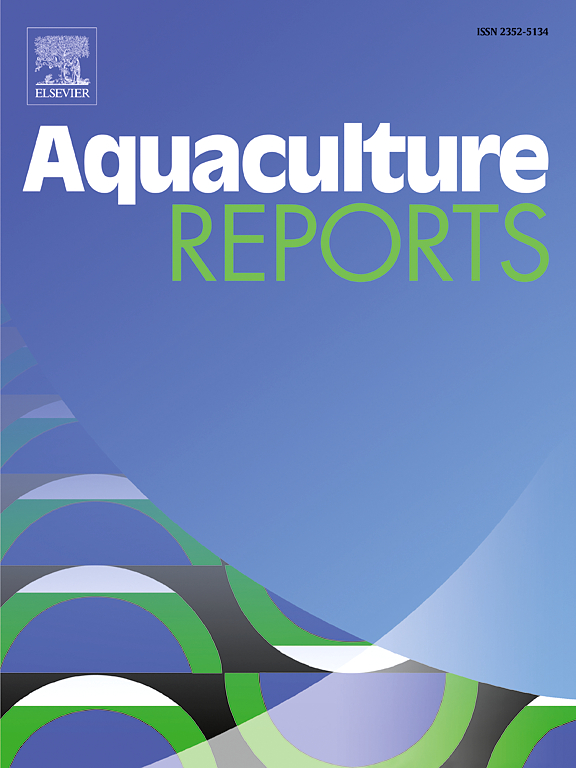Marine aquaponics for arid and coastal resilience: Closing loops in saline food systems
IF 3.7
2区 农林科学
Q1 FISHERIES
引用次数: 0
Abstract
Marine aquaponics—also referred to as maraponics—integrates land-based marine aquaculture with the hydroponic cultivation of halophytes and salt-tolerant crops, enabling food production in saline environments with minimal freshwater input. This circular system presents a sustainable alternative to conventional aquaculture and agriculture, particularly in arid and coastal regions where freshwater scarcity and soil salinization challenge traditional farming. By recirculating water and nutrients between fish and plants, marine aquaponics reduces waste discharge, enhances resource efficiency, and minimizes environmental impact. This review synthesizes the current state of research on marine aquaponic systems, with a focus on system design, water quality management, nutrient dynamics, species selection, and operational parameters. We explore enabling technologies such as recirculating aquaculture systems (RAS), biofloc systems, and probiotics, alongside the functional role of halophytes in nutrient removal and biomass production. Case studies from diverse climatic zones highlight emerging applications and challenges. Despite growing interest, marine aquaponics faces unresolved issues, including salinity management, economic viability, and knowledge gaps in plant–microbe–fish interactions. We identify critical research priorities and propose future directions to support scalable, commercially viable models. Given its potential to reduce freshwater use and support food production in fragile ecosystems, marine aquaponics offers a promising contribution to climate-resilient and circular food systems.
干旱和沿海恢复力的海洋鱼共生:盐碱化食物系统的闭环
海洋水培法——也被称为maraponics——将陆地海洋水产养殖与盐生植物和耐盐作物的水培栽培结合起来,使在盐水环境中以最少的淡水投入生产粮食。这种循环系统是传统水产养殖和农业的可持续替代方案,特别是在淡水短缺和土壤盐碱化挑战传统农业的干旱和沿海地区。通过在鱼类和植物之间循环水和营养物质,海洋鱼菜共生减少了废物排放,提高了资源效率,并最大限度地减少了对环境的影响。本文从系统设计、水质管理、养分动态、物种选择和操作参数等方面综述了海洋水培系统的研究现状。我们探索了诸如循环水养殖系统(RAS)、生物絮团系统和益生菌等使能技术,以及盐生植物在营养去除和生物质生产中的功能作用。来自不同气候带的案例研究突出了新兴的应用和挑战。尽管人们对海洋鱼菜共生的兴趣越来越大,但仍面临一些尚未解决的问题,包括盐度管理、经济可行性以及植物-微生物-鱼类相互作用方面的知识空白。我们确定关键的研究重点,并提出未来的方向,以支持可扩展的、商业上可行的模型。鉴于其在脆弱生态系统中减少淡水使用和支持粮食生产的潜力,海洋鱼菜共生为气候适应型和循环粮食系统做出了有希望的贡献。
本文章由计算机程序翻译,如有差异,请以英文原文为准。
求助全文
约1分钟内获得全文
求助全文
来源期刊

Aquaculture Reports
Agricultural and Biological Sciences-Animal Science and Zoology
CiteScore
5.90
自引率
8.10%
发文量
469
审稿时长
77 days
期刊介绍:
Aquaculture Reports will publish original research papers and reviews documenting outstanding science with a regional context and focus, answering the need for high quality information on novel species, systems and regions in emerging areas of aquaculture research and development, such as integrated multi-trophic aquaculture, urban aquaculture, ornamental, unfed aquaculture, offshore aquaculture and others. Papers having industry research as priority and encompassing product development research or current industry practice are encouraged.
 求助内容:
求助内容: 应助结果提醒方式:
应助结果提醒方式:


